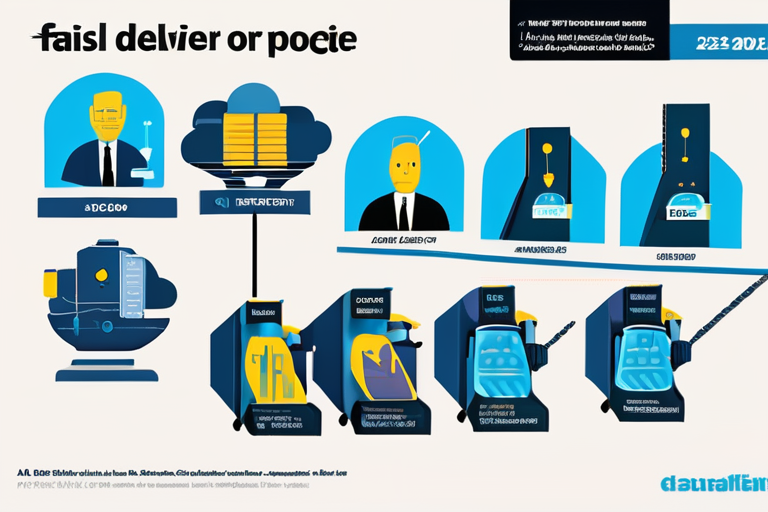Business Leaders Struggle to Unlock AI's Full Potential, Survey Reveals
A recent survey of 1,775 IT leaders by HPE found that while nearly a quarter of organizations have operationalized AI, the majority remain stuck in experimentation. This disconnect between AI's promise and reality has significant financial implications, with companies failing to realize the full value of their AI investments.
According to the survey, only 22% of organizations have successfully operationalized AI, up from 15% the previous year. This means that nearly 80% of companies are still struggling to move beyond the experimentation phase, where AI is often used for proof-of-concept projects rather than real-world applications. The survey highlights the challenges of scaling AI from a technical achievement to a business-critical tool.
The financial details of this disconnect are stark. Companies that fail to operationalize AI are likely to miss out on significant cost savings and revenue gains. A study by McKinsey estimates that companies that successfully deploy AI can reduce costs by up to 20% and increase revenue by up to 15%. In contrast, companies that struggle to operationalize AI may see their costs increase by up to 10% and their revenue decline by up to 5%.
The market impact of this disconnect is significant. As AI becomes increasingly important for businesses, companies that fail to operationalize AI risk falling behind their competitors. This can lead to a loss of market share, reduced customer satisfaction, and ultimately, decreased revenue and profitability.
HPE's survey highlights the challenges of operationalizing AI, but also provides a roadmap for success. According to Craig Partridge, senior director worldwide of Digital Next Advisory at HPE, "the true value of AI lies in inference. Inference is where AI earns its keep. It's the operational layer that puts all that training to use in real-world workflows." Partridge believes that the biggest return on AI investments will come from "trusted AI inferencing at scale and in production."
To achieve this, companies need to adopt a three-part approach, according to Christian Reichenbach, worldwide digital advisor at HPE. This approach involves establishing trust in AI models, scaling AI inferencing, and integrating AI into production workflows. By following this approach, companies can unlock the full value of their AI investments and achieve significant financial benefits.
The company background of HPE is relevant to this story. As a leading provider of enterprise technology solutions, HPE has a deep understanding of the challenges and opportunities presented by AI. The company's survey and advisory services are designed to help businesses navigate the complexities of AI and achieve success.
The future outlook for AI is bright, but it will require companies to overcome significant challenges. As AI becomes increasingly important for businesses, companies that fail to operationalize AI risk falling behind their competitors. However, companies that succeed in operationalizing AI will be well-positioned to achieve significant financial benefits and stay ahead of the competition.



























Share & Engage Share
Share this article